SUMMARY
This is AI generated summarization, which may have errors. For context, always refer to the full article.
![[OPINION] Strengthen civilian agencies, limit military involvement in disaster response](https://www.rappler.com/tachyon/2022/06/tl-military-calamityresponse.jpg)
As the incoming administration led by president-elect Ferdinand “Bongbong” Marcos Jr. and vice president-elect Sara Duterte prepare and plan how to tackle the country’s many socio-economic issues, it is crucial for the Philippines to be reminded of one of its most pressing humanitarian issues — how to prepare for and respond to disasters.
Globally, climate change is the defining challenge of our era. While climate-related disasters will invariably increase costs to society, we can best prepare for these impacts and mitigate their effects by strengthening civilian institutions focused on disaster preparedness, climate change adaptation and mitigation. This is particularly vital to the Philippines which remains one of the world’s most disaster-prone countries.
A recent study at the Harvard Humanitarian Initiative (HHI) underscores the need for principled humanitarian civil-military coordination to avert threats to both humanitarian aid workers and crisis-affected populations in the Philippines. This would require both civilian-led humanitarian organizations and the military to be familiar with, respect, and adhere to guidelines that are designed to ensure that each of them maintains its independence to fulfill their own mandates such as the United Nation’s “Recommended Practices for Effective Humanitarian Civil-Military Coordination of Foreign Military Assets (FMA) in Natural and Man-made Disasters.”
Who are best positioned for disaster response?
Whereas the Armed Forces of the Philippines (AFP) will continue to play an important role in responding to major disasters, it is civilian institutions that should be strengthened to manage the far more common small-scale disasters that collectively cost society millions of dollars annually in losses. Civilian agencies are also best positioned to plan, train, and invest in disaster preparedness measures at the local level.
Despite the advancement in the mechanisms of civil-military coordination in the Philippines, there are still some areas of concern such as: when relief and reconstruction efforts are provided with military assistance, political patronage, or non-need-based criteria. For instance, when politicians use military escorts, a practice common in the Philippines, this can undermine perceptions of neutrality, which in turn can increase a disaster’s scope and magnitude for politically-marginalized communities facing acute risks. These marginalized communities are less likely to receive relief assistance and less capable of expressing grievances arising from disasters and consequences.
Impacts of disasters can reinforce a vicious cycle of insecurity and vulnerability and exacerbate anti-state grievances. If people believe that the relief allocation process is compromised or people in authority withhold goods or reward those loyal to them, disaster management decisions can then generate perceptions of social injustice which increase the likelihood of dissent and heighten conflict.
When the military gets involved politically in disaster response, it goes against the humanitarian principle of independence wherein the provision of assistance ought to be autonomous from political, economic, military, or other objectives.
Why limit military involvement?
The military plays a significant first-responder role in large emergencies and disasters in the Philippines. However, some of our study interviewees have expressed concern about this. This was echoed by some members of the military who noted that their involvement in disaster response should be further limited, and civilian agencies strengthened to provide direct relief. Their engagement in disaster response was sometimes seen to be a distraction from the military’s core mission of national security and protecting the country’s sovereignty.
This view was supported by others in terms of conflict resilience or the ability to resist or recover from conflict. Although another interviewee noted that while the primary role of the military is territorial defense, its capacity and size make it ideally suited to disaster response. Civilian organizations maintain the limited capacity to respond on a large scale which results in both local government units and NGOs depending on military assistance for disaster relief.
Despite the military playing an important role in disaster response and providing safety and effectiveness to the humanitarian sector as stated in the Inter-Agency Standing Committee (IASC) guidelines, there are some instances when their presence can pose harm.
Attacks from non-state actors sometimes happen during disaster relief operations. One interviewee from the humanitarian sector said that the use of the uniform of AFP during response adds risks to the other (humanitarian) responders and may make the other civilian responders vulnerable to attacks by other groups. During rescue operations for children, it can also add trauma and stereotype.
On the side of the military, one interviewee said that they need the respect and understanding of the civilian agencies so the military can facilitate its work and the work of others and save more lives.
Independence of humanitarian actors
The convergence of natural disasters and conflict is increasing. With the expanding role of the military to take up civilian functions in key government offices, the space for NGOs and civil society also shrinks.
Climate change will almost certainly lead to an increased need for humanitarian assistance that will sometimes be needed in areas that are also impacted by ongoing conflict. In these cases, principled humanitarian civil-military coordination is essential to the safety and security of humanitarian aid workers and the impartial delivery of assistance. The heavy use of former military and police officials as heads of civilian government agencies responsible for disaster preparedness and response could well constrain the work of the humanitarian sector by imposing bureaucratic measures such as registration, reporting obligations, permit system, and restricting access to funding at a time when more, not less, independence of humanitarian actors will be needed to meet the disasters of the present and near future.
The future role of the military will be determined, in part, by the success or failure of legislation of House Bill 6075 for the creation of a civilian Department of Resilience. Such an agency could bring into one FEMA-like department roles for disaster preparedness, response, and recovery. It would likely lead to an increase in civilian capacity and a reduction in reliance on the military and the Office of Civil Defense (OCD) in its chief executive function of the National Disaster Risk Reduction and Management Council (NDRRMC). – Rappler.com
Mark Daza is the Project and Communications Manager of the Resilient Communities Program at HHI.
Vincenzo Bollettino, PhD is the Director of the Resilient Communities Program at HHI.
Add a comment
How does this make you feel?
![[OPINION] A disaster in a disaster: When too many orgs help out in emergencies](https://www.rappler.com/tachyon/r3-assets/612F469A6EA84F6BAE882D2B94A4B421/img/1EDA76707902491CB4768A06AA763C4F/good-intention-is-not-enough-january-24-2020.jpg?fit=449%2C449)
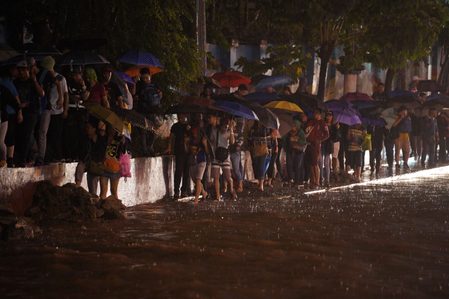
![[OPINION] Why a Department of Disaster Resilience should not be created](https://www.rappler.com/tachyon/2020/11/imho-ddr.jpg?fit=449%2C449)








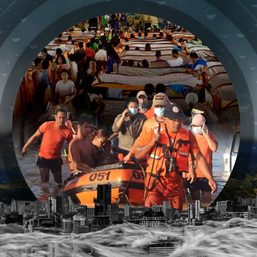
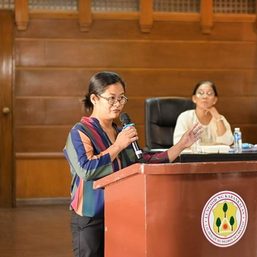
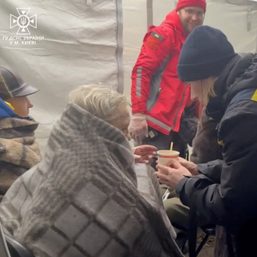

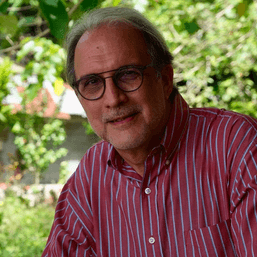
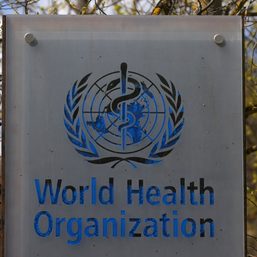
There are no comments yet. Add your comment to start the conversation.